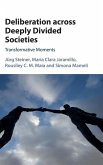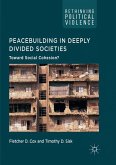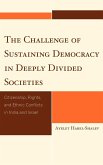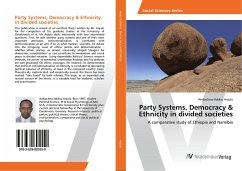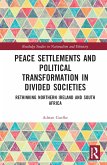Democracy is inherently difficult in societies divided along deep ethnic cleavages. Elections in such societies will often encourage 'centrifugal' politics which reward extremist ethnic appeals, zero-sum political behaviour and ethnic conflict, and which consequently often lead to the breakdown of democracy. Reilly examines the potential of 'electoral engineering' as a mechanism of conflict management in divided societies. He focuses on the little-known experience of a number of divided societies which have used preferential, vote-pooling electoral systems - such as Papua New Guinea, Sri Lanka, Northern Ireland and Fiji. Examination of these cases shows that electoral systems which encourage bargaining between rival political actors, which promote the development of broad-based, aggregative political parties and which present campaigning politicians with incentives to attract votes from a range of ethnic groups can, under certain conditions, encourage the development of moderate, accommodatory political competition in divided societies.
Table of contents:
Introduction: democracy in divided societies; 1. The historical development of preferential voting; 2. The historical development of preferential voting; 3. Centripetal incentives and political engineering in Australia; 4. The rise and fall of centripetalism in Papua New Guinea; 5. Electoral engineering and conflict management in divided societies: (i) Fiji and Sri Lanka compared; 6. Electoral engineering and conflict management in divided societies: (ii)Northern Ireland, Estonia and beyond; 7. Technical variations and the theory of preference voting; Conclusion: assessing the evidence.
Reilly analyses the design of electoral systems for divided societies, examining various divided societies which utilise 'vote-pooling' systems - including Sri Lanka, Northern Ireland and Fiji. Political institutions which encourage broad-based, aggregative political parties can, under certain conditions, encourage moderate, accommodatory political competition - influencing the trajectory of democratization in transitional states.
Reilly analyses the design of electoral systems for divided societies, examining various divided societies.
Hinweis: Dieser Artikel kann nur an eine deutsche Lieferadresse ausgeliefert werden.
Table of contents:
Introduction: democracy in divided societies; 1. The historical development of preferential voting; 2. The historical development of preferential voting; 3. Centripetal incentives and political engineering in Australia; 4. The rise and fall of centripetalism in Papua New Guinea; 5. Electoral engineering and conflict management in divided societies: (i) Fiji and Sri Lanka compared; 6. Electoral engineering and conflict management in divided societies: (ii)Northern Ireland, Estonia and beyond; 7. Technical variations and the theory of preference voting; Conclusion: assessing the evidence.
Reilly analyses the design of electoral systems for divided societies, examining various divided societies which utilise 'vote-pooling' systems - including Sri Lanka, Northern Ireland and Fiji. Political institutions which encourage broad-based, aggregative political parties can, under certain conditions, encourage moderate, accommodatory political competition - influencing the trajectory of democratization in transitional states.
Reilly analyses the design of electoral systems for divided societies, examining various divided societies.
Hinweis: Dieser Artikel kann nur an eine deutsche Lieferadresse ausgeliefert werden.


